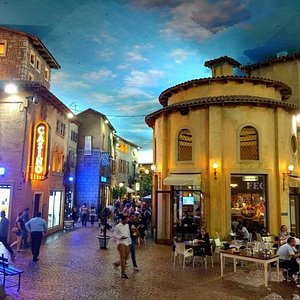Johannesburg North Attractions for Beginners
Johannesburg North Attractions for Beginners
Blog Article
Some Ideas on Johannesburg North Attractions You Need To Know
Table of ContentsGetting My Johannesburg North Attractions To WorkGet This Report on Johannesburg North AttractionsJohannesburg North Attractions Can Be Fun For AnyoneNot known Facts About Johannesburg North AttractionsThe Ultimate Guide To Johannesburg North AttractionsThe smart Trick of Johannesburg North Attractions That Nobody is DiscussingThe Ultimate Guide To Johannesburg North Attractions
Nevertheless you must maintain security in mind and visitors have to continue to be sharp whatsoever times when in strange surroundings. Talk to the residents when you are in town to find out concerning the area you are remaining in. Johannesburg North attractions. When on the road (this does not relate to buying malls and various other safe environments) finest basic recommendations is to try your best to look like a local and to stay clear of presenting any type of form of riches
Johannesburg North Attractions Things To Know Before You Buy
Professor Revil Mason O. J. (Thomson, 1946) discovered the Witwatersrand's pre-colonial history. His historical job exploded the 'em pty land' myth, according to which the region was lacking human habitation prior to the arrival of European settlers. In his publications Prehistory of the Transvaal: A Record of Human Activity (1962) and Beginnings of Black People of Johannesburg and the Southern Western Central Transvaal AD 3501880 (1986 ), Teacher Mason demonstrated the level of social and financial development in the location before Europeans established foot below.

Things about Johannesburg North Attractions
In 1878, David Wardrop found gold in quartz blood vessels at Zwartkop, north of Krugersdorp. In 1881, Stephanus Minnaar came throughout gold on the ranch Kromdraai, near the Cradle of Mankind.
In March 1886, an outcropping (quickly to be called the Key Coral reef) was discovered, fairly fortuitously, on Gerhardus Oosthuizen's ranch Langlaagte. Some say that the Lancastrian coal miner George Walker found this coral reef. Another travelling English prospector, George Harrison (who had actually previously functioned in Australian mines) obtained a prospecting licence in respect of Langlaagte in Might 1886.
He chose to go on in a quest for greener pastures, and disposed of his Langlaagte case for the baronial sum of 10. Alas: underneath lay the richest goldfield ever before located. The exploration of this abundant auriferous reef prompted a gold rush that signified completion of bucolic tranquillity in the southerly Transvaal.
It would, within 6 years, come to be the biggest community in southerly Africa. Within a years, it would make the Z. A. R. up until then an anarchical and insolvent little state the richest nation in Africa. By the turn of the century, the Z. A. R. was to surpass Russia, Australia and the United States of America to come to be the world's leading gold manufacturer, generating greater than a quarter of the globe's see post gold.
Johannesburg North Attractions Fundamentals Explained
It was referred to as Ferreira's Camp, called after Colonel Ignatius Ferreira. He was a Boer traveler upon whom the British authorities had actually bestowed the status of Buddy of one of the most Distinguished Order of St Michael and St George (entitling him to the post-nominal letters C. M. G.) in gratitude for his role in the battle that had actually deposed the Pedi king Sekhukhune in 1879.
Quickly the camp was bursting with outdoors tents and wagons as newbies arrived daily from everywhere. By September 1886, some 400 people lived in Ferreira's Camp, which quickly boasted prefabricated iron and timber structures. Two various other camps were developed: Meyer's Camp on the ranch Doornfontein, and Paarl Camp. The latter was nicknamed Afrikander Camp; many people from the Cape Colony resolved there.

All About Johannesburg North Attractions
This name got money by word of mouth, such that the State Assistant verified the name to the Mining Commissioner on 9 October 1886. Stands in the town were auctioned on 8 December 1886. While some stands were sold for 10, others were torn down for as little as sixpence.
Two years later, these erven were to change hands for as much as 750 each. The tented camps dwindled as a dorp of corrugated iron buildings developed click for more and expanded north of the mines situated along the Key Reef Road. Areas such as Jeppe's Town (where working-class immigrants erected their residences) and Doornfontein (where the wealthy new 'Randlords' started to build their opulent residences) were quickly contributed to the ever-expanding map of the community.
Rumored Buzz on Johannesburg North Attractions
Aside from the street names, there were no indicators of Johannesburg being located in a Dutch-speaking country. Lots of years later, C. W. Kearns O. J. (among the initial boys registered at St John's site College in 1898) would recall: 'An unusual reality concerning Johannesburg was that, although it was in the [Boer Republic], virtually every person talked English and also the Federal government servants attended to one in English, unless they were first attended to in the Taal (or Reduced Dutch)'.
Therefore, Britain had a passion in ensuring optimum problems for gold production on the Witwatersrand, and that the gold was exported to London rather than Berlin a vital made even more clamant by the Z. A. R - Johannesburg North attractions.'s boosting toenadering with Germany. Mine owners got on a clash with President Kruger, whose plan of monopolistic giving ins (often given to his cronies) prevented mining firms from procuring materials of materials (especially dynamite) and labour by themselves, cheaper terms
The Facts About Johannesburg North Attractions Revealed
In 1890, the Volksraad had restricted the franchise business to white males that had actually lived in the Z. A. R. for fourteen years or longer, therefore invalidating many of the immigrants (that happened to be the significant contributors to the fiscus). Anxiety for the vote was a mere pretext for promoting a various agenda; a lot of uitlanders regarded themselves as temporary site visitors and had no purpose of staying in the Z.
Report this page